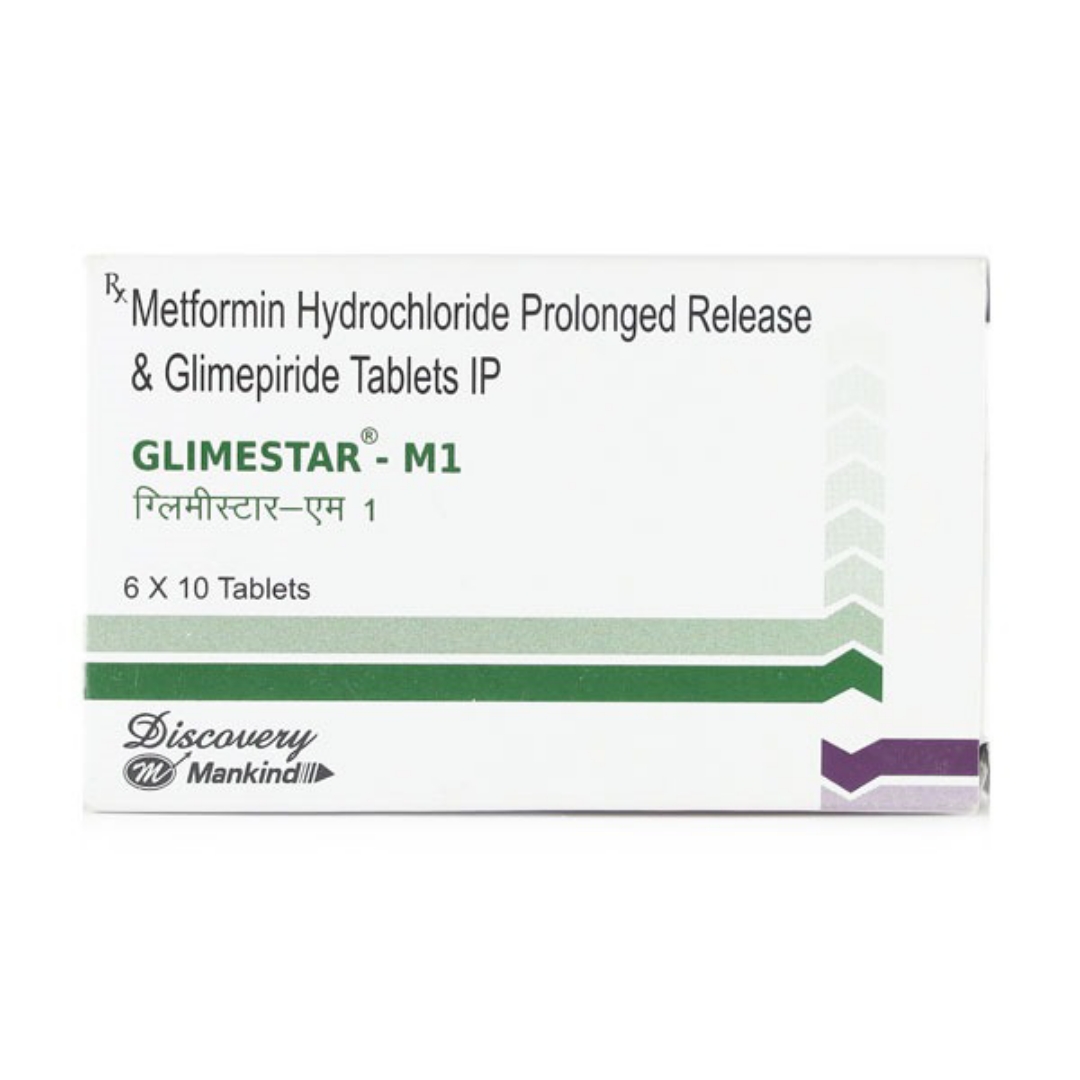
Manufactured By MANKIND PHARMA PVT.LID.-1357
Glimestar M1 Tablet is a combination of Glimepiride and Metformin, commonly prescribed to manage blood sugar levels in patients with type 2 diabetes. This tablet helps to regulate blood glucose levels, improving overall health and well-being for diabetic patients.
Glimestar M1 tablet should be taken with food. To get the maximum benefit, take it consistently at the same time each day. Your doctor will determine the appropriate dosage for you, which may be adjusted periodically based on your blood sugar levels and how well the medication is working.
Continue taking this medication as prescribed, even if you feel fine or your blood sugar levels are under control. Discontinuing it without your doctor's approval could lead to an increase in blood sugar, putting you at risk for kidney damage, vision loss, nerve issues, and possible limb loss. Keep in mind that this medication is just one part of a comprehensive management plan, which should also include a balanced diet, regular physical activity, and weight management as recommended by your doctor. A healthy lifestyle is crucial in managing diabetes.
Common side effect of this medication includes nausea, dizziness, taste changes, diarrhea, stomach pain, headache, and upper respiratory tract infection. Some people may find that they put on weight with this medicine. The most frequent side effect of this medicine is low blood glucose (hypoglycemia). It is important to be aware of the symptoms of low blood sugar, such as sweating, dizziness, headaches, and shaking, and know how to manage them. To help reduce this, ensure you have regular meals and always carry a quick source of glucose, like sugary foods or fruit juice. Additionally, drinking alcohol can increase the risk of hypoglycemia and should be avoided.
This medication should not be taken if you have type 1 diabetes mellitus, diabetic ketoacidosis (high blood acid levels), or severe kidney or liver disease. Before starting the medication, inform your doctor if you have a history of heart disease, as it may not be appropriate for you. Pregnant or breastfeeding women should consult their doctor before using it. Regular blood sugar monitoring is recommended, and your doctor may also suggest tests to check your blood cell counts and liver function.